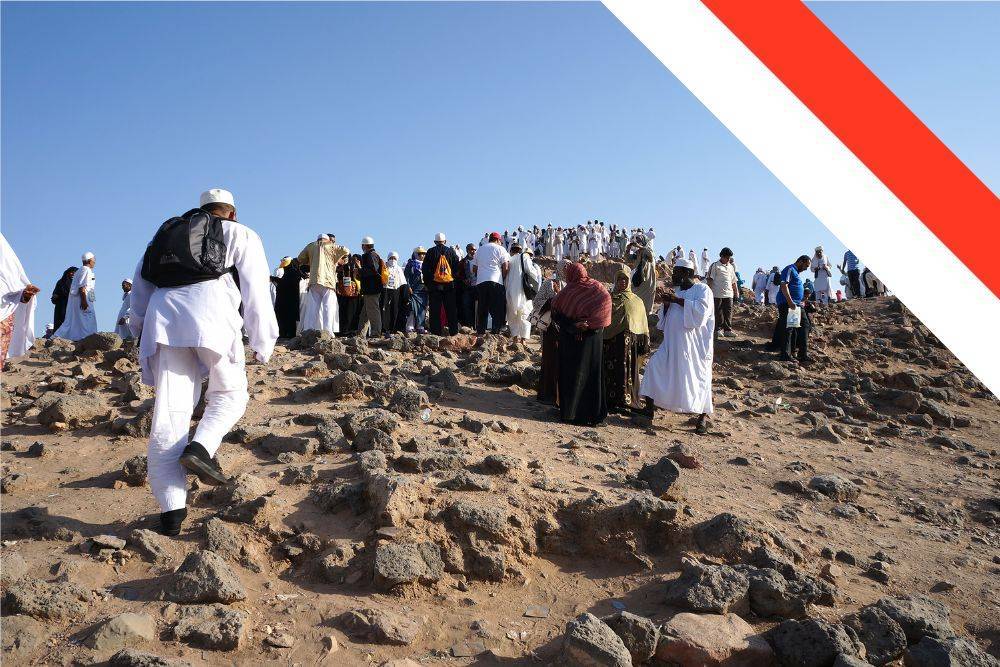Following the deaths of at least 1,300 people at this year’s hajj, the health of pilgrims in Saudi Arabia has become a critical issue.
Witnesses and experts say a combination of scorching temperatures and difficulties with crowd control made the sacred event disorienting and dangerous. These pilgrims lack access to essential facilities like air-conditioned buses and tents. Consequently, they must endure long walks under the scorching sun without adequate protection. This situation highlights significant health risks associated with Hajj participation.
Climate Challenges during Hajj
The worsening climate conditions in the region compound the problem. Extreme temperature increases make the Hajj pilgrimage increasingly perilous. A 2021 study found that if the Earth’s temperature rises by 1.5°C above pre-industrial levels, the risk of heatstroke for Hajj pilgrims will increase fivefold. Therefore, this situation will only deteriorate over time. The increasing heat is a critical concern for both registered and unregistered pilgrims.
In recent years, global climate change has led to unprecedented heatwaves across various regions, and Saudi Arabia is no exception. The desert climate, already harsh and unforgiving, becomes even more dangerous during these periods of intense heat. Pilgrims, who are often unaccustomed to such extreme temperatures, face severe health risks. The long, physically demanding rituals of Hajj, combined with the lack of shade and hydration, further exacerbate these dangers. Moreover, the infrastructure, although continually improving, struggles to keep pace with the rising temperatures and the sheer number of pilgrims.
Health Risks of Extreme Heat
Exposure to extreme heat can lead to serious health issues such as heat exhaustion and heatstroke. Heat exhaustion occurs when the body loses excessive amounts of water and salt through sweating, resulting in symptoms like heavy sweating, weakness, dizziness, headache, nausea, and muscle cramps. If untreated, heat exhaustion can escalate to heatstroke, a much more severe and life-threatening condition. Heatstroke occurs when the body’s temperature regulation system fails, causing the body’s core temperature to rise to dangerous levels, often exceeding 40°C (104°F). Symptoms of heatstroke include confusion, loss of consciousness, seizures, and, in severe cases, organ failure and death.
This condition requires immediate medical attention as it can rapidly become fatal. Therefore, it is crucial to ensure pilgrims are adequately protected from extreme temperatures by providing sufficient hydration, shaded areas, and cooling facilities. Educating pilgrims about the signs and symptoms of heat-related illnesses and the importance of early intervention is also essential in preventing these potentially deadly conditions. These measures can significantly reduce the risk of heat-related health issues, ensuring a safer pilgrimage for all.
Saudi Arabia’s Hajj Strategy
Saudi Arabia seeks to expand religious tourism, aiming to accommodate 30 million Hajj and Umrah pilgrims annually by 2030. Despite this ambitious goal, the substantial costs associated with official Hajj packages, ranging from $5,000 to $10,000 per person, serve as a deterrent for many Muslims. As a result, some pilgrims are compelled to pursue alternative, often informal, routes due to financial constraints. This economic burden not only poses financial challenges but also increases the likelihood of individuals opting for unregistered and potentially hazardous paths.
Government Criticism and Response
Critics emphasise the critical need to safeguard all pilgrims, regardless of their registration status, from the severe heat conditions. They highlight the Saudi government’s imposition of stringent penalties on unregistered pilgrims this year. Fahad Al-Jalajel, the Saudi Health Minister, reported that the government offered health support to unregistered pilgrims 141,000 times during the Hajj. Despite these efforts, he admitted that unregistered pilgrims often endure prolonged walks under direct sunlight without sufficient protection. Alarmingly, 83% of the fatalities occurred among unregistered pilgrims, underscoring the urgent health risks associated with heat exposure during the pilgrimage.
Government Actions to Address the Issue
The Saudi government has implemented measures to address this concern. Penalties, including imprisonment for up to six months and fines as high as 50,000 riyals (£10,000), have been imposed on individuals aiding unregistered pilgrimages. Furthermore, 16 travel agencies have had their licenses revoked and have been legally prosecuted. These efforts are designed to decrease the incidence of unregistered pilgrims, thereby enhancing safety standards during the Hajj pilgrimage.
Health Services and Safety Measures
The Saudi government has also increased the availability of health services for pilgrims. Mobile clinics and first aid stations have been established along the pilgrimage routes. Emergency response teams are on standby to assist pilgrims in distress. Additionally, public awareness campaigns educate pilgrims on the dangers of heat and the importance of staying hydrated.
The Role of Technology
Technology can play a crucial role in ensuring the safety of Hajj pilgrims. Wearable devices that monitor vital signs and body temperature can help detect early signs of heat-related illnesses. These devices can alert medical teams when a pilgrim’s health is at risk. Mobile apps providing real-time weather updates and health tips can also be beneficial. Implementing such technologies can significantly reduce health risks for all pilgrims.
Community and International Support
The global Muslim community has a crucial role to play in addressing this issue. By offering financial assistance to those unable to afford official Hajj packages, the number of unregistered pilgrims can be reduced. Collaborations between international health organisations and Saudi authorities to enhance medical support during Hajj can significantly improve health outcomes for all pilgrims. These joint initiatives are essential for ensuring a safer pilgrimage experience for everyone involved.
Ensuring Safety for All Pilgrims
The recent fatalities among Hajj pilgrims in Saudi Arabia highlight the critical imperative to mitigate risks posed by extreme heat. It is imperative for the Saudi government to enhance protective measures for all pilgrims, against the severe heat. This proactive approach aims to enhance the safety and efficiency of the Hajj pilgrimage. Safeguarding the well-being of every pilgrim must be prioritised, necessitating coordinated actions from local authorities and international stakeholders alike.
Have a pressing question for a doctor? Medical Channel Asia has launched a community forum page where you can get questions answered by a medical specialist. Visit the community forum here.

